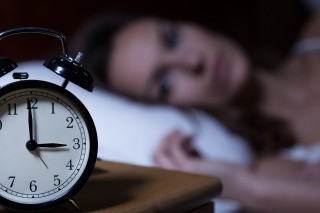Insomnia Disorder Treatment Scottsdale | Phoenix
Psychologists and psychiatrists at Shier Private Practice in Scottsdale, AZ specialize in the treatment of insomnia disorder. Our private outpatient clinic offers a comprehensive psychiatric/medical assessment and treatment plan. Treatment may include medications, behavioral therapies or a combination of treatments.
What Is Insomnia Disorder?
 Insomnia disorder is a sleep disorder characterized by inadequate sleep. Individuals with insomnia disorder may have trouble initiating or maintaining sleep, and their dissatisfaction may be with the quality or quantity of sleep they are getting. Insomnia disorder is the most prevalent among all other types of sleep disorders. It may be caused by a number of factors, however, nearly half of those with insomnia disorder also present with a comorbid mental health condition.
Insomnia disorder is a sleep disorder characterized by inadequate sleep. Individuals with insomnia disorder may have trouble initiating or maintaining sleep, and their dissatisfaction may be with the quality or quantity of sleep they are getting. Insomnia disorder is the most prevalent among all other types of sleep disorders. It may be caused by a number of factors, however, nearly half of those with insomnia disorder also present with a comorbid mental health condition.
The first onset of insomnia disorder usually occurs in early adulthood, but can occur earlier. Estimates for the overall prevalence of the disorder range from 6%-10%.
What Are the Symptoms of Insomnia Disorder?
The DSM-5 criteria for insomnia disorder are as follows:
- A predominant complaint of dissatisfaction with sleep quantity or quality, associated with one or more of the following symptoms.
-
- Difficulty initiating sleep
- Difficulty maintaining sleep, characterized by frequent awakenings or problems returning to sleep after awakenings
-
- The sleep disturbance causes clinically significant distress or impairment in social, occupational, educational, academic, behavioral, or other important areas.
- The sleep difficulty occurs at least 3 nights a week.
- The sleep difficulty is present for at least 3 months.
- The sleep difficulty occurs despite adequate opportunity for sleep.
- The insomnia is not better explained by and does not occur exclusively during the course of another sleep-wake disorder.
- The insomnia is not attributable to the physiological effects of a substance.
- Coexisting mental disorders and medical conditions do not adequately explain the predominant complaint of insomnia.
What Is the Cause of Insomnia Disorder?
Insomnia disorder can be caused by various factors including medical/psychological conditions, stressors, or lifestyles. Several conditions have been linked with the presence of insomnia such as chronic pain, heart disease, asthma and diabetes. Some prescription and over-the-counter medications for allergies, pain, or blood pressure may also interfere with sleep. Anxiety disorders, post-traumatic stress and depression are also commonly associated with insomnia. Lifestyle factors that may lead to insomnia disorder include inconsistent travel or work schedules, eating large amounts of food right before bed, caffeine, nicotine or alcohol use, and/or poor sleep rituals (watching TV, using a computer, playing video games before bed). Changes in sleep patterns increase with age, individuals over 60 are at a higher risk for developing insomnia disorder. While all of these are potential causes of insomnia, stress is the most common. Persistent concerns about school, work, family or finances, or major losses may often affect sleep patterns.
How Is Insomnia Disorder Diagnosed?
The diagnosis for insomnia disorder may include a thorough biopsychosocial assessment and medical evaluation to confirm the diagnosis and rule out other conditions that may present similarly.
Insomnia Disorder Treatment
Psychotherapy and medication have shown to be beneficial in the treatment of insomnia disorder.
Cognitive behavioral therapy for insomnia (CBT-I) is the first line of treatment for insomnia disorder has shown to be equally as effective or more effective than sleep medications. CBT-I works by helping control/eliminate maladaptive thoughts and actions that may be causing insomnia. Cognitive behavioral therapy for insomnia may include techniques like stimulus control therapy, relaxation techniques, paradoxical intention, sleep restriction or light therapy.
There are a number of approved by the FDA for the treatment of insomnia. Z-hypnotic medications, generally recommended for short-term treatment include Zolpidem/Ambien (and Zolpidem XR), Zaleplon/Sonata, and Eszopiclone/Lunesta. Additional medications include Ramelteon/Rozerem a melatonin-receptor agonist and Suvorexant/Belsorma a selective, dual orexin receptor antagonist.
How To Cope
- Maintain a balanced lifestyle including a healthy diet, regular exercise and self-care, this will reduce feelings of anxiety that might be keeping you awake.
- Schedule – Create a schedule for waking up and going to bed to normalize your sleep patterns.
- Adjust nighttime rituals – Avoid watching TV in bed, eating large amounts, and participating in stimulating/stressful activities right before bedtime. Do soothing activities only.
- Avoid naps – Sleeping during the day will take away from the sleep your body should be getting at night.
- Move clocks – Take the clocks out of your view from your bed. Watching time pass may increase anxiety and make it harder to sleep.
Last update: February 25, 2019
The content on this website is not intended to be a substitute for professional medical advice, diagnosis, or treatment. Always seek the advice of your physician or other qualified health provider with any questions you may have regarding a medical condition.
